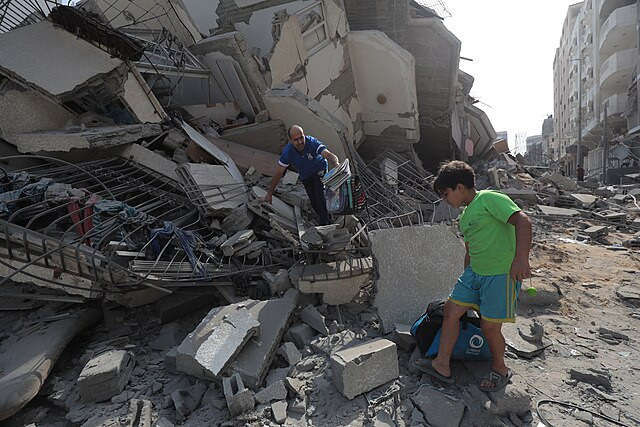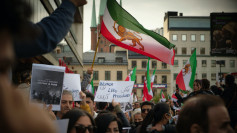The United Nations has been compelled to halt aid deliveries to Gaza following new evacuation orders issued by the Israeli military. This suspension threatens to derail a crucial polio vaccination campaign aimed at combating the resurgence of the disease in the embattled region.
On Sunday, Israel's military ordered additional evacuations in parts of Deir Al-Balah, a central Gaza area that has become a critical hub for displaced Palestinians. This directive has forced many residents to flee yet again, complicating the efforts of the UN and health agencies to administer polio vaccines to over 640,000 children in Gaza.
The current crisis has been exacerbated by the discovery of Gaza's first polio case in 25 years. The patient, an unvaccinated 10-month-old, tested positive for the disease earlier this month. This finding, combined with positive sewage samples from late June, has prompted the World Health Organization (WHO) to issue urgent warnings about the potential for a widespread outbreak.
The highly contagious polio virus, which primarily affects children under five, poses severe health risks including paralysis and death. The situation has drawn increased international attention as the UN and the WHO mobilize resources to prevent a health catastrophe.
On Monday, the Israeli Coordination of Government Activities in the Territories (COGAT) reported that over 1.2 million doses of the polio vaccine had entered Gaza through the Kerem Shalon crossing. The vaccination campaign, which is being coordinated with the Israel Defense Forces (IDF), is crucial for curbing the spread of the virus.
However, a senior UN official disclosed that the latest Israeli evacuation orders have forced a temporary halt to aid deliveries. The official highlighted that the UN's operations are currently stalled due to the lack of safe locations for aid distribution following the evacuation directives.
"Where do we move now?" the official questioned, reflecting the growing difficulties faced by aid organizations in Gaza. The UN had previously relocated its main operations to Deir Al-Balah after earlier evacuations affected Rafah, southern Gaza.
The ongoing conflict, which has ravaged Gaza for nearly ten months, has led to severe humanitarian challenges. The majority of Gaza's 2.3 million residents are now displaced, with many living in dire conditions without access to essential resources such as food, clean water, and medical supplies.
The situation in Gaza has become increasingly dire as Israeli military actions continue. Recent strikes have resulted in significant casualties, with at least 17 Palestinians killed in various locations on Tuesday. The conflict has caused substantial destruction and suffering, exacerbating the challenges faced by displaced families.
Despite these challenges, the UN Relief and Works Agency (UNRWA) and the Palestinian Ministry of Health remain committed to advancing the vaccination campaign. UNRWA's director of communications, Juliette Touma, emphasized that the agency is striving to deliver humanitarian assistance despite the severe difficulties. Meanwhile, the Palestinian Ministry of Health is working to provide an additional 400,000 vaccine doses to ensure 95% coverage of children under ten.
Efforts to reach a ceasefire agreement have continued in Cairo, but progress has been slow. Negotiations have been hampered by key issues, including control over critical corridors in Gaza and the movement of people and goods. The Israeli government insists on maintaining control over the Philadelphi corridor, a key route for smuggling, and has emphasized security measures to prevent the movement of fighters.






